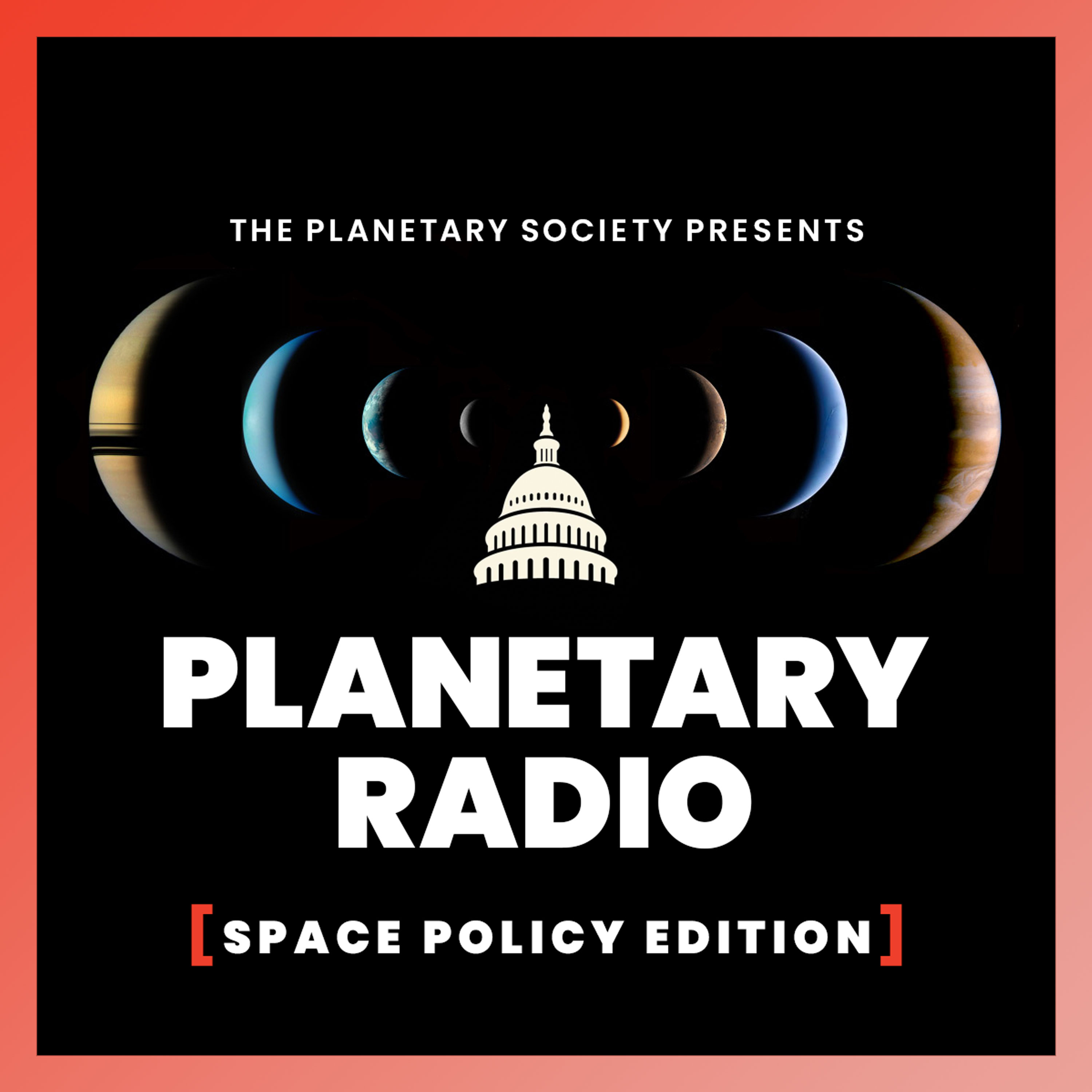

Planetary Radio: Space Policy Edition
The Planetary Society
The politics, policy, and history behind space exploration.
Episodes
Mentioned books

Feb 7, 2020 • 1h 13min
Is the Moon a Stepping-Stone or a Cornerstone for Mars? (with Laura Seward Forczyk)
Casey and his guest discuss a bill working its way through the US House of Representatives that challenges the Artemis plan adopted by NASA for human exploration of the Moon and Mars.

Jan 10, 2020 • 1h 8min
Houston, We Have a Space Force (with Brian Weeden)
Legislation signed by President Trump in December formally established the 6th branch of the U.S. armed services, the first such expansion in 72 years. What exactly will the new Space Force do?

Dec 6, 2019 • 1h 37min
The Biggest Policy Moments of the Decade (with Marcia Smith)
As the 2010s come to a close, Marcia Smith, the founder of Space Policy Online, rejoins the show to explore the most significant and impactful space policy decisions of the 2010s.

Nov 1, 2019 • 1h 30min
How a Report Can Move Mountains
How can a simple report—just words on a page—lead to creation of a spacecraft? We explore how a 2019 report on the need for a dedicated, space-based telescope to find threatening near-Earth asteroids motivated NASA to pursue that very mission.

Oct 11, 2019 • 57min
Happy Fiscal New Year!
October 1st kicked off federal fiscal year 2020—a day that should also have kicked off a new budget for NASA. But Congress has not funded the space agency yet, instead passing a temporary stopgap measure to keep the government open until November 21st. Brendan Curry, The Planetary Society's Chief of D.C. Operations, joins the show to discuss the latest political developments in Washington, good news for planetary defense, and how the funding delay could spell trouble for the space agency's 2024 lunar goal.

Sep 6, 2019 • 1h 9min
Why Apollo Ended (with John Logsdon)
As NASA struggles to return humans to the Moon by 2024, it's worth asking: why did it stop in the first place? Space historian John Logsdon joins the show to discuss the politics behind the decision to abandon the Moon in 1972. Casey and Mat also discuss the proposal to offer a $2 billion prize for sending humans back to the Moon and establishing a base there, and why that's not good public policy.

Aug 2, 2019 • 1h 23min
The Home Front During Apollo (with Emily Margolis)
Did the public support Project Apollo? Dr. Emily Margolis joins the show to explore the domestic politics and cultural impact of the space age throughout the 1960s. Despite the success of the lunar landings, there was more opposition to Apollo than we generally remember.

Jul 5, 2019 • 2h 4min
Why Apollo Happened (with Roger Launius)
Space historian Dr. Roger Launius joins the show to explain why Apollo happened the way it did, how a moonshot briefly became a solution to a national security problem, and why it is unlikely to happen again.

Jun 7, 2019 • 2h 4min
The Soviet Moonshot (with Asif Siddiqi)
The U.S. won the space race in July of 1969 with the success of Apollo 11. But was the Soviet Union even racing? How close were they to beating the United States to the Moon?

May 3, 2019 • 1h 29min
Lessons From the Moonshot That Never Was (with Mark Albrecht)
Thirty years ago, Dr. Mark Albrecht led the National Space Council when President George H.W. Bush announced the Space Exploration Initiative, an ambitious effort to send humans to the Moon and then on to Mars.


